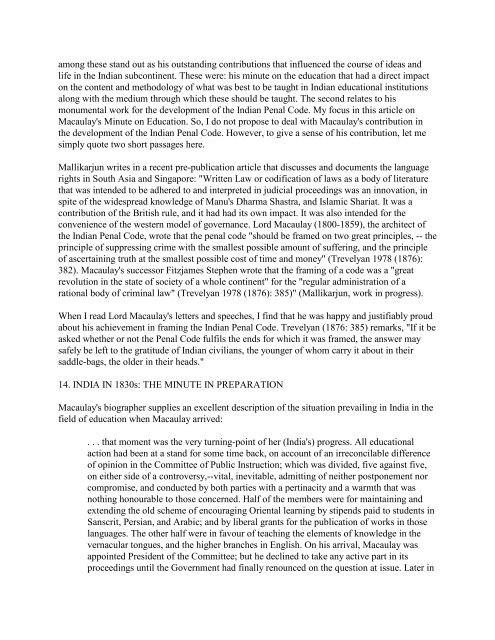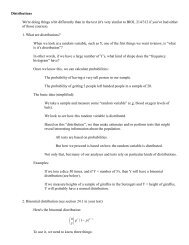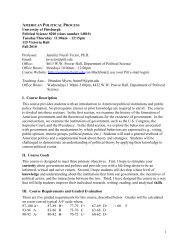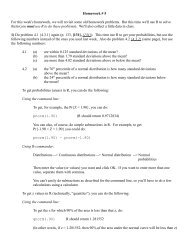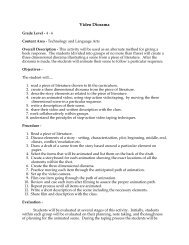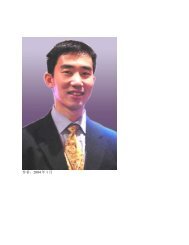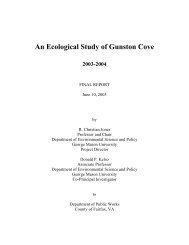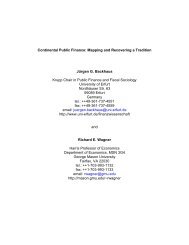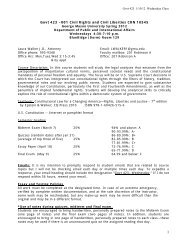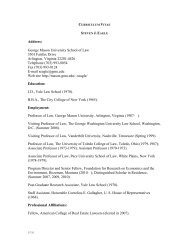M.S. Thirumalai, Ph.D. “Lord Macaulay: The Man Who Started It All ...
M.S. Thirumalai, Ph.D. “Lord Macaulay: The Man Who Started It All ...
M.S. Thirumalai, Ph.D. “Lord Macaulay: The Man Who Started It All ...
Create successful ePaper yourself
Turn your PDF publications into a flip-book with our unique Google optimized e-Paper software.
among these stand out as his outstanding contributions that influenced the course of ideas and<br />
life in the Indian subcontinent. <strong>The</strong>se were: his minute on the education that had a direct impact<br />
on the content and methodology of what was best to be taught in Indian educational institutions<br />
along with the medium through which these should be taught. <strong>The</strong> second relates to his<br />
monumental work for the development of the Indian Penal Code. My focus in this article on<br />
<strong>Macaulay</strong>'s Minute on Education. So, I do not propose to deal with <strong>Macaulay</strong>'s contribution in<br />
the development of the Indian Penal Code. However, to give a sense of his contribution, let me<br />
simply quote two short passages here.<br />
Mallikarjun writes in a recent pre-publication article that discusses and documents the language<br />
rights in South Asia and Singapore: "Written Law or codification of laws as a body of literature<br />
that was intended to be adhered to and interpreted in judicial proceedings was an innovation, in<br />
spite of the widespread knowledge of <strong>Man</strong>u's Dharma Shastra, and Islamic Shariat. <strong>It</strong> was a<br />
contribution of the British rule, and it had had its own impact. <strong>It</strong> was also intended for the<br />
convenience of the western model of governance. Lord <strong>Macaulay</strong> (1800-1859), the architect of<br />
the Indian Penal Code, wrote that the penal code "should be framed on two great principles, -- the<br />
principle of suppressing crime with the smallest possible amount of suffering, and the principle<br />
of ascertaining truth at the smallest possible cost of time and money" (Trevelyan 1978 (1876):<br />
382). <strong>Macaulay</strong>'s successor Fitzjames Stephen wrote that the framing of a code was a "great<br />
revolution in the state of society of a whole continent" for the "regular administration of a<br />
rational body of criminal law" (Trevelyan 1978 (1876): 385)" (Mallikarjun, work in progress).<br />
When I read Lord <strong>Macaulay</strong>'s letters and speeches, I find that he was happy and justifiably proud<br />
about his achievement in framing the Indian Penal Code. Trevelyan (1876: 385) remarks, "If it be<br />
asked whether or not the Penal Code fulfils the ends for which it was framed, the answer may<br />
safely be left to the gratitude of Indian civilians, the younger of whom carry it about in their<br />
saddle-bags, the older in their heads."<br />
14. INDIA IN 1830s: THE MINUTE IN PREPARATION<br />
<strong>Macaulay</strong>'s biographer supplies an excellent description of the situation prevailing in India in the<br />
field of education when <strong>Macaulay</strong> arrived:<br />
. . . that moment was the very turning-point of her (India's) progress. <strong>All</strong> educational<br />
action had been at a stand for some time back, on account of an irreconcilable difference<br />
of opinion in the Committee of Public Instruction; which was divided, five against five,<br />
on either side of a controversy,--vital, inevitable, admitting of neither postponement nor<br />
compromise, and conducted by both parties with a pertinacity and a warmth that was<br />
nothing honourable to those concerned. Half of the members were for maintaining and<br />
extending the old scheme of encouraging Oriental learning by stipends paid to students in<br />
Sanscrit, Persian, and Arabic; and by liberal grants for the publication of works in those<br />
languages. <strong>The</strong> other half were in favour of teaching the elements of knowledge in the<br />
vernacular tongues, and the higher branches in English. On his arrival, <strong>Macaulay</strong> was<br />
appointed President of the Committee; but he declined to take any active part in its<br />
proceedings until the Government had finally renounced on the question at issue. Later in


